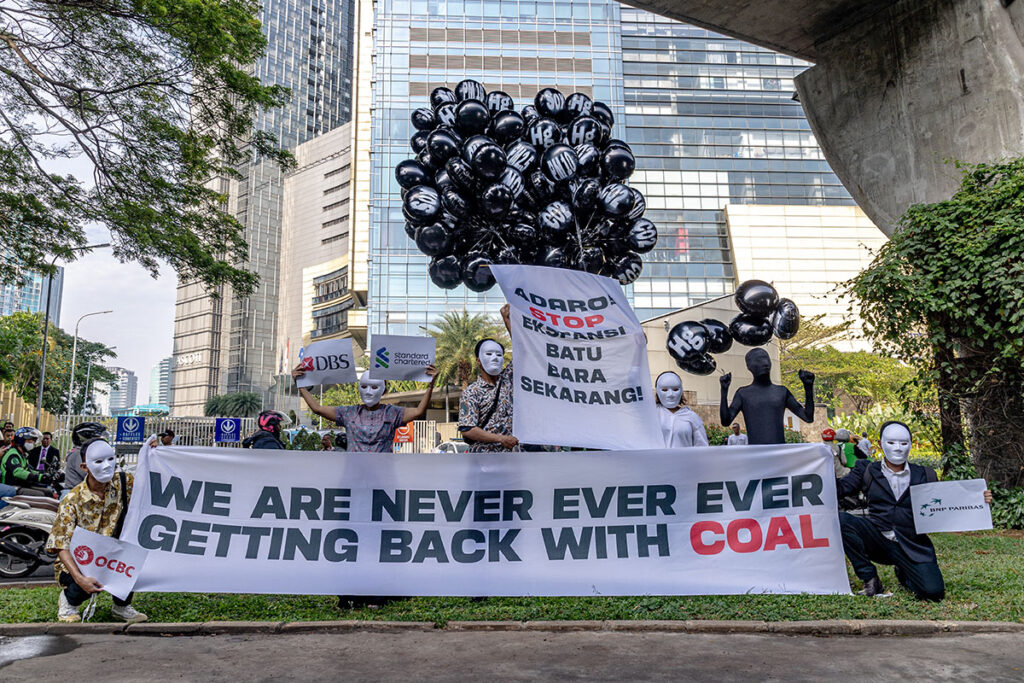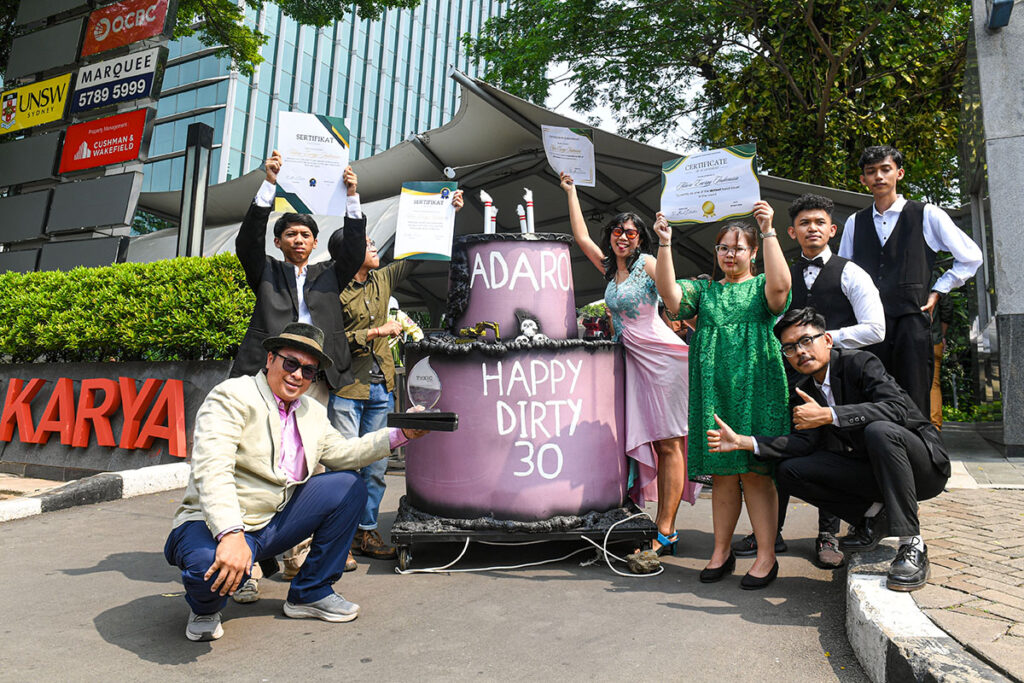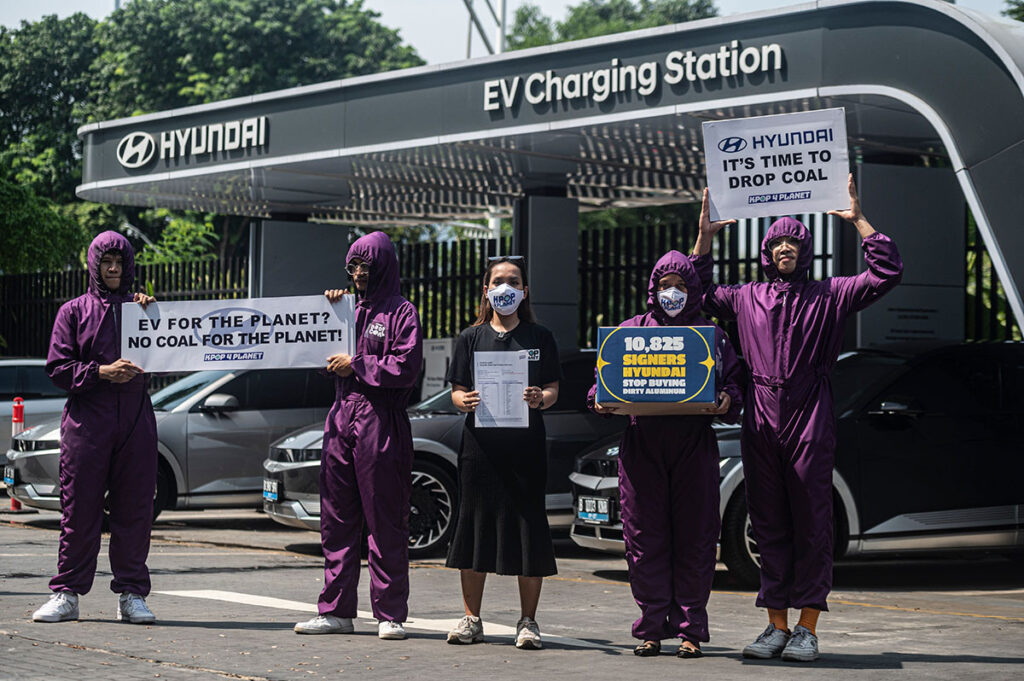A recap of the mounting pressures and reputational risks linked with Adaro’s controversial coal activities
In 2023, Adaro published a “decarbonization journey” that supposedly would carry the company towards a green transformation. Although it has recently stated that it plans to halt thermal coal expansion, Adaro’s “decarbonization” plan ironically hinges on significant metallurgical coal expansion and a construction of a new coal-fired power plant, with renewable energy only playing a minor role.
Given Adaro’s destructive track record in South and North Kalimantan, and how Adaro successfully joined a global league of climate wreckers as 1 of the 57 global companies contributing to 80% of global carbon emissions in 2016 – 2022, calling Adaro’s track record a “climate destruction journey” is hardly an exaggeration.
From “greenwashing” an aluminium smelter project backed by a new coal plant to driving away the residents of a South Kalimantan village for coal expansion – for the sake of coal, Adaro has done it all.
Pressure is mounting against Adaro and companies linked with Adaro. Hyundai, and banks including Standard Chartered, and DBS have chosen to ditch Adaro. Given how investors are tightening coal restrictions globally, it is likely that others will follow suit.
Adaro may seek to refinance its US$750 million bond, which is maturing in October 2024. Should Adaro refinance its bond, bankers must ask themselves:
Are you willing to expose your company to serious reputational risk by backing or underwriting Adaro?
Adaro has been given the chance to transition, yet it continues to disregard climate science. Now is the right time for banks to divest.
Many groups publicly oppose Adaro’s coal expansion plans. Adaro has been the subject of regular protests since 2021.
Adaro’s coal mining expansion in South Kalimantan has been linked to the deadly 2021 floods in that region. This coal mining expansion also displaced the entire population of Wonorejo village. Adaro has been accused of resorting to intimidation methods which eventually drove away local communities.

Adaro’s new coal-fired power plant attached to its new aluminium smelter in North Kalimantan is expected to result in hot water waste contamination, coal-fired power plant fly ash pollution, smoke, and noise, along with a host of other environmental issues, that could disrupt the livelihoods of local fishermen and communities and disturb local ecosystems.
Adaro’s track record of environmental destruction and controversy has drawn scrutiny from international media and also from a climate finance watchdog, the Toxic Bond Initiative. Their dirty bond list recently included Adaro as one of the 30 dirtiest bond issuers in the world.

Adaro’s “greenwashing” attempt results in shareholder backlash
Adaro’s plan to build a new coal plant has been met with opposition. The project in North Kalimantan was initially promoted as “green”, which led to a backlash from a group of Indonesian shareholders who called Adaro out for greenwashing at Adaro’s 2023 Annual General Meeting.
The incident went viral and Adaro’s plan was widely criticised across social media platforms.
Hyundai drops deal with Adaro in response to KPOP fan pressure

Hyundai – a brand that is currently represented by the popular Korean boy band BTS – came under fire because it had signed a memorandum of understanding to purchase Adaro’s aluminium produced by a smelter that would be powered by a new 1.1 GW coal-fired power plant. More than 11,000 petitioners urged Hyundai to cancel the deal with Adaro and after mounting pressure from KPOP fans represented by KPOP4PLANET, Hyundai terminated the deal.
Investors and companies that choose to be associated with Adaro will bear serious reputational risks
Until Adaro brings an end to all coal expansion and aligns with the globally agreed net zero pathways, such as the International Energy Agency’s Net Zero by 2050 scenario, any company that remains affiliated with Adaro will continue to put its reputation at risk.